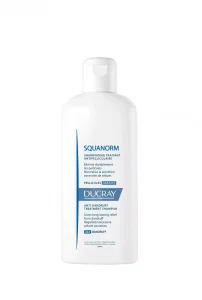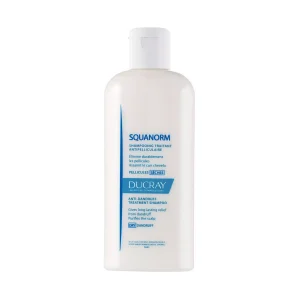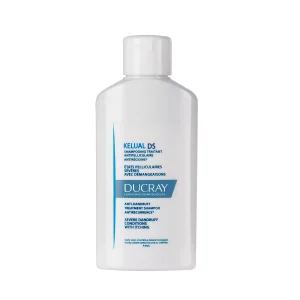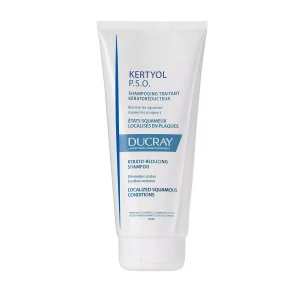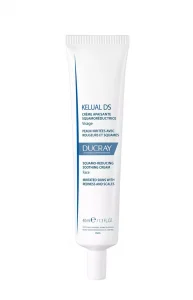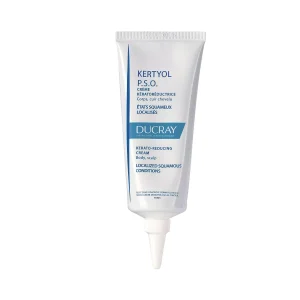
Many people experience severe dandruff in their lifetime and feel overly sensitive when they talk about it. Dandruff is harmless, but it can be embarrassing and troublesome. Good news for you and your wardrobe: those little white flakes aren’t about to take over your black jackets forever. If you want to keep your scalp and hair follicles healthy, read this article from The Dermo Lab in collaboration with the dermatologist Dr. Fatma Ebada.
What causes severe dandruff?
Dandruff is caused by an overproduction of skin cells and the shedding of dead skin from the scalp.
One of the causes of dandruff is the proliferation of a type of yeast called Malassezia. Malassezia yeast lives on most healthy scalps without causing any problems. However, it can lead to dandruff when it grows out of control.
Dandruff can be caused by dry skin resulting from dry air. Another common cause is seborrheic dermatitis, an oily scalp condition that can contain an abundance of yeast and results in large white flakes or yellow scales due to the uneven removal and clumping of dead skin cells. Psoriasis is another skin condition that can cause scaling and inflammation of the scalp.
Babies can be affected by a form of dandruff called “cradle cap”. Most often seen in newborns and during infancy, this condition results in a yellow or white scalp that flakes and has some crusting. It is harmless and usually disappears within the baby’s first year.
To sum up, Dr. Fatma Ebada gathers the causes of severe dandruff as follows: Fungal infections, dryness, seborrheic dermatitis, and psoriasis.
What are the risk factors for dandruff?
The risk factors for developing dandruff are the following:
- Washing your hair too often or not washing it often enough;
- Excessive use of hair care products;
- Cold weather (because indoor heating tends to dry out the skin and scalp);
- Stress;
- Oily hair and scalp: Malassezia feeds on the oils of the scalp. Excessively oily skin and hair increase the risk of dandruff;
- Certain diseases: Doctors aren’t sure why, but adults with neurological diseases like Parkinson’s are more likely to develop seborrheic dermatitis and dandruff. The same is true for people with HIV or a weakened immune system.
How do I get rid of severe dandruff?
More frequent shampooing is probably the most important method of fighting dandruff. This is because an oily scalp leads to a build-up of dead skin cells that are removed unevenly, causing unsightly flakes to form. Depending on your hair type, daily wetting of the scalp and using a shampoo 2-3 times a week, may be enough to treat dandruff.
If that doesn’t work, you need to choose the best-medicated shampoo for dandruff. According to Dr. Fatma Ebada, dandruff treatment often involves the use of an antifungal shampoo containing ketoconazole or miconazole as the antifungal agent, and it’s also best if it contains a keratolytic like salicylic acid.
Because the medicinal ingredients vary from product to product, you may need to experiment with different products, or alternate products to find the one that works best for you and minimizes flaking.
- Ketoconazole and miconazole – These are potent, broad-spectrum antifungals that inhibit the growth of yeast and other fungal infections.
- Coal tar – This agent works by slowing down skin cell turnover, the rate at which cells grow and are shed.
- Salicylic Acid – This exfoliating ingredient helps loosen and remove dead skin cells to prevent clumping and flaking.
- Selenium Sulfide – Selenium sulfide slows skin cell turnover and may reduce fungus on the scalp.
- Zinc Pyrithione – This agent works in much the same way as selenium sulfide, but is milder and causes less drying of the hair.
- Ciclopiroxolamine – This is another antifungal that reduces the amount of Malassezia on the scalp.
If you have a sore, flaky, or itchy scalp, check out our list of tested anti-dandruff shampoos.
For oily dandruff:
Ducray Squanorm Anti-Dandruff Treatment Shampoo – Oily Dandruff
For dry dandruff:
Ducray Squanorm Anti-Dandruff Treatment Shampoo – Dry Dandruff
For dandruff caused by seborrheic dermatitis:
Ducray Kelual DS Treatment Shampoo
For dandruff caused by psoriasis:
Ducray Kertyol P.S.O Rebalancing Shampoo
If you suffer from psoriasis or seborrheic dermatitis, you may benefit from some medical creams.
Creams for dandruff caused by seborrheic dermatitis remove flakes on the scalp, and face (eyebrows, nose wings, eyelids), and soothe irritated skin.
Similarly, anti-dandruff creams for psoriasis are concentrated creams that calm itching, normalize scaling, and soothe redness while preventing their recurrence. In addition, their keratolytic action also helps eliminate visible patches on the scalp.
So, don’t worry, anti-dandruff creams are here to save the day.
For dandruff caused by seborrheic dermatitis:
Ducray Kelual DS Squamo-Reducing Anti-Recurrence Soothing Cream
For dandruff caused by psoriasis:
Ducray Kertyol P.S.O Local Use Concentrate
In addition to basic shampoos, there are a few things you can do to reduce your risk of developing dandruff:
1- Manage your stress: Stress can trigger dandruff or make existing symptoms worse.
2- Give your scalp some sun: Sun exposure can actually be beneficial for dandruff. However, don’t sunbathe so much that you risk UV damage or skin cancer, and make sure you always wear sunscreen.
3- Avoid excessive use of hair products (including dyes) and switch shampoos if a brand isn’t working. An allergy-free product may work better for you.
4- Massage your scalp for a few minutes each day to stimulate circulation and loosen dead skin cells. This massage can then be followed by brushing to remove loose scales.
When to see your doctor
Dandruff can usually be effectively controlled with over-the-counter dandruff shampoos. However, if the itchy scalp persists despite using anti-dandruff shampoo for several weeks, or if you notice redness and swelling of the scalp, see a dermatologist for evaluation. You may need prescription treatment. If dandruff is not treated, Dr. Fatma Ebada affirms that it will become a chronic condition.
Severe dandruff may be a symptom of a skin condition such as eczema, psoriasis, or seborrheic dermatitis. Sometimes severe dandruff associated with seborrheic dermatitis can cause hair thinning. Fortunately, in most cases, the hair grows back once the condition is treated.
If your dandruff problems or complications persist, your doctor may refer you to a dermatologist.
Last Updated on April 16, 2024

